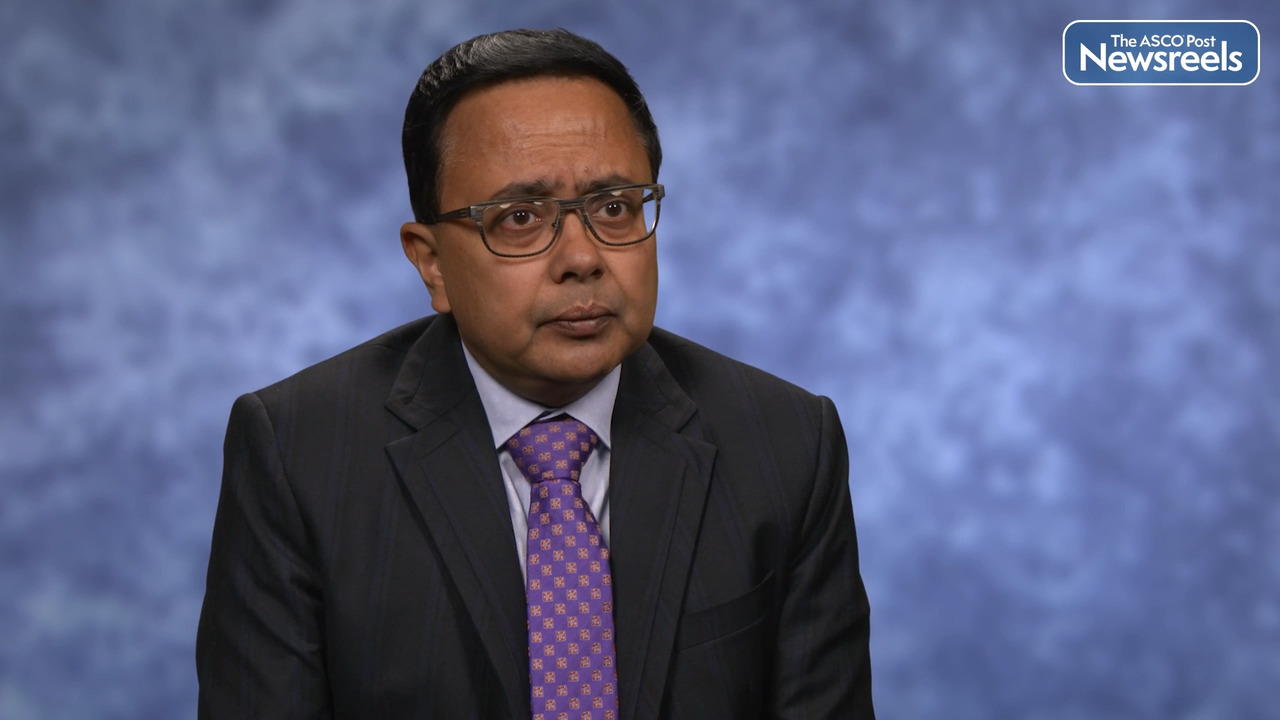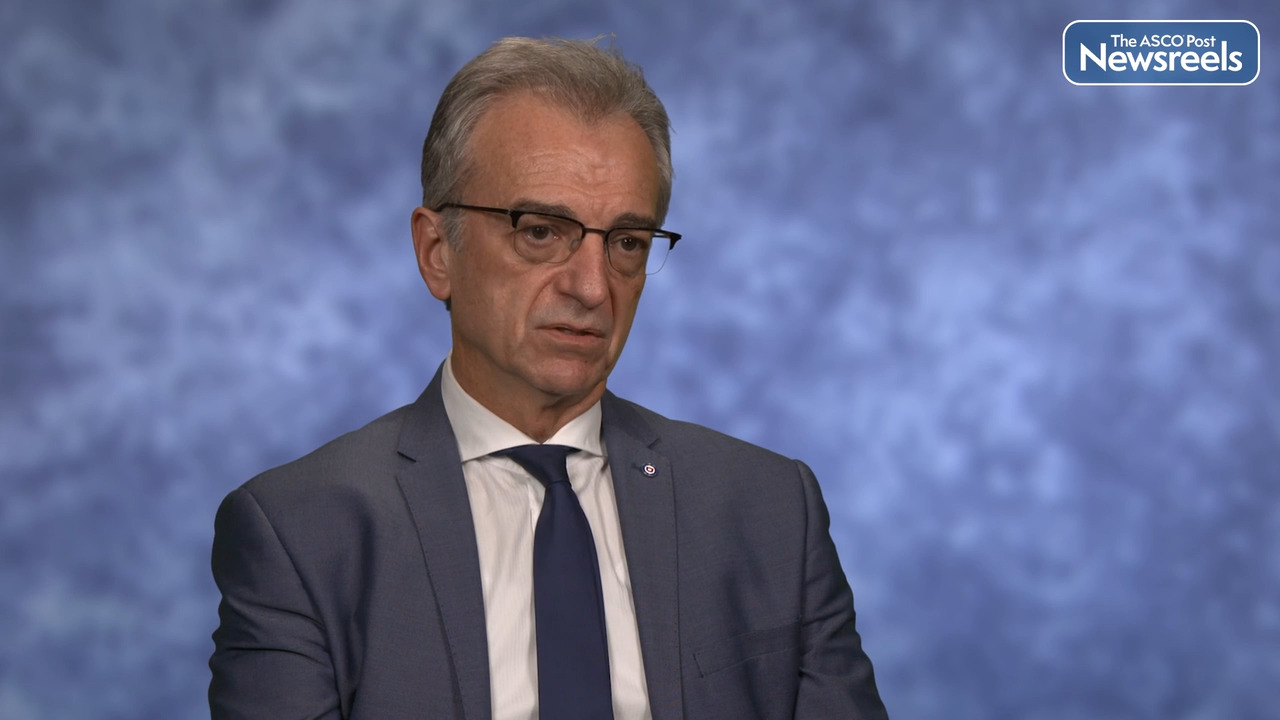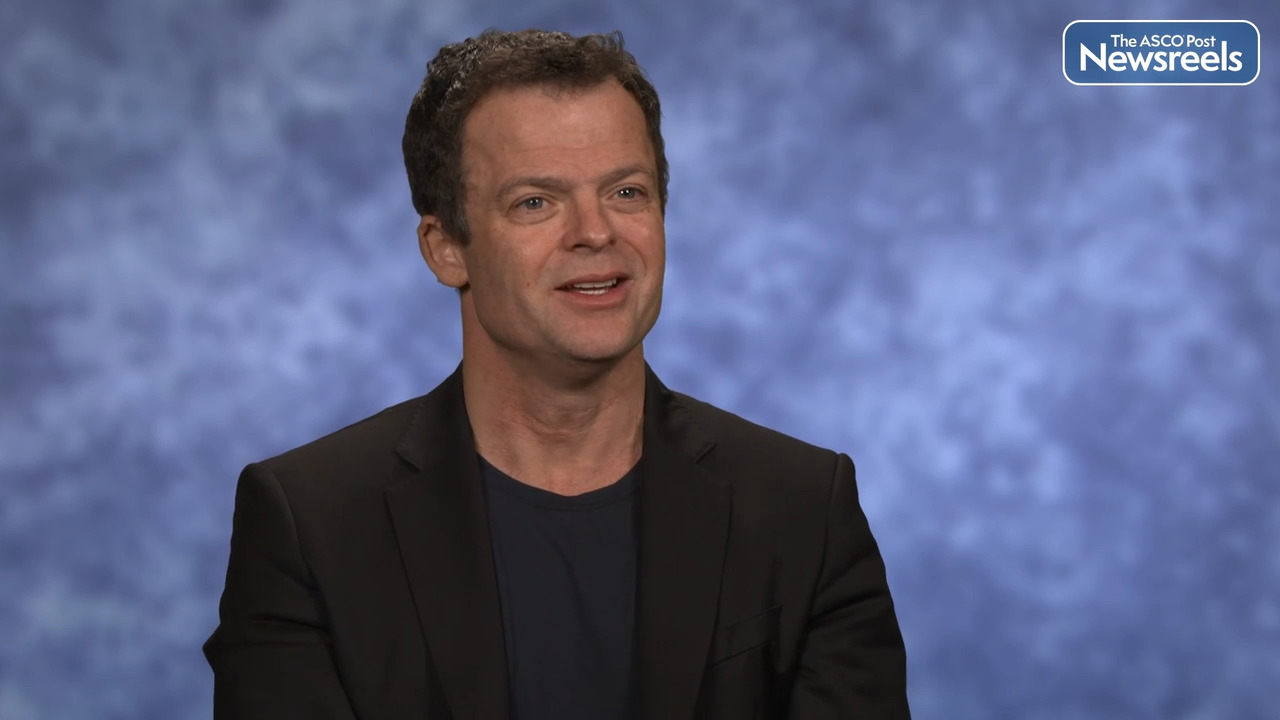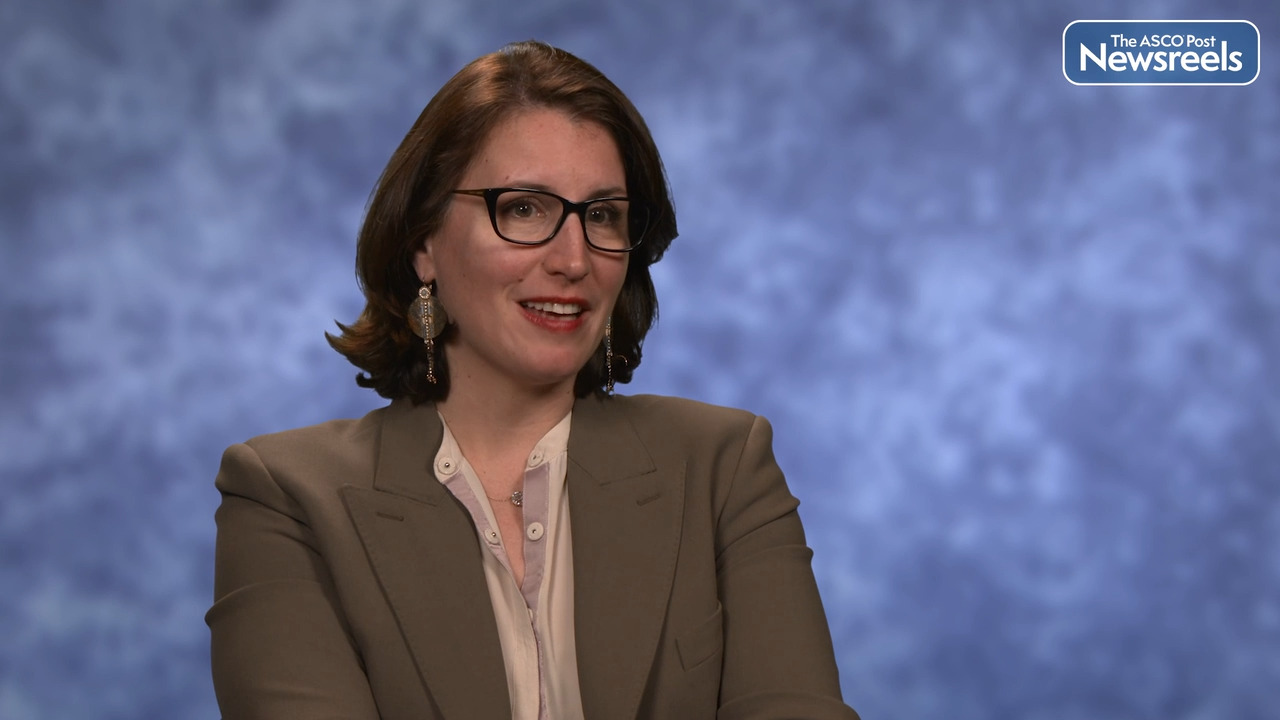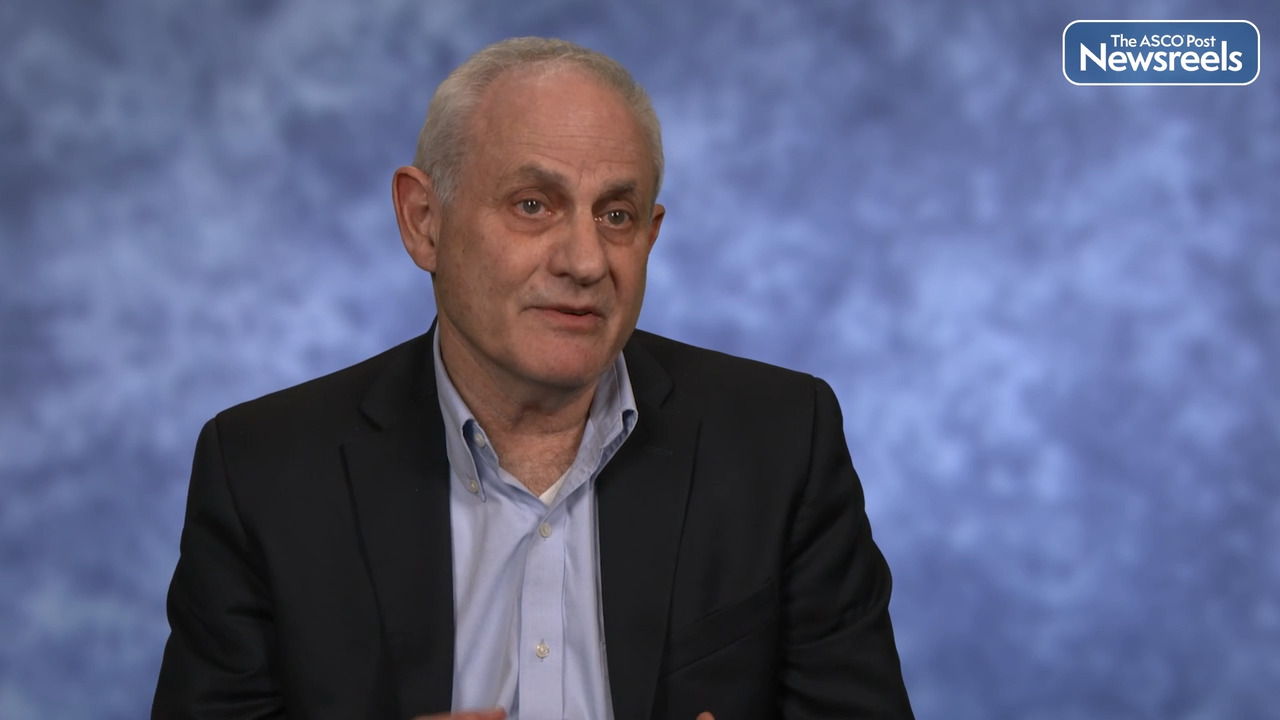Transcript
Disclaimer: This video transcript has not been proofread or edited and may contain errors.
The FORMULA-509 trial was a randomized, multi-center, 345 patient trial looking at patients with a rising PSA after radical prostatectomy. Specifically, everybody in the trial was going to get salvage radiation, plus six months of a GnRH agonist. And what we were looking to answer is the question, "Does adding six months of Abiraterone and Apalutamide improve outcomes compared to the standard of six months of Bicalutamide with this regimen?"
We enrolled patients with a PSA greater than 0.1 and at least one unfavorable risk factor. So this could have been something like a Gleason nine to 10, negative margin, pathologic T three four, or positive lymph nodes. We stratified the trial by a PSA greater than 0.5 versus less than 0.5, and by pathologic node positive versus pathologic node negative. It was a one-to-one randomization, so half the patients got Abiraterone and Apalutamide, and half the patients got Bicalutamide.
The primary endpoint was progression free survival, and secondary endpoint was metastasis free survival. When we looked at the overall study, we didn't quite meet statistical significance. Progression free survival for the overall study was a hazard ratio of 0.71, with a P value of 0.06. This was a one-sided P value, which was what the design of the study was. Metastasis free survival for the overall study was also not quite statistically significant, at a P-value of 0.05 exactly, and also a one-sided P-value.
However, where things got really interesting was in the subgroup analyses. So remember, we stratified and pre-planned subgroup analyses, and when we looked at the subgroup of a PSA greater than 0.5, we found a highly statistically significant effect for both PFS and MFS. And here, we used two-sided P-values per protocol. So when we looked at progression free survival for the overall study, the hazard ratio was 0.5, and the P-value was 0.03, two-sided. Similarly, for metastasis free survival, the hazard ratio was 0.32, with a P value of 0.02. And again, that was two-sided.
Now, in terms of the absolute magnitude of the benefit, it was an 18% difference in metastasis free survival at three years, meaning the number needed to treat was just barely above five to prevent one metastasis at three years. So how do we put this into context? Well, the other way currently to intensify six months of hormonal therapy for patients getting salvage radiation, is to use the RADICALS-HD's approach, which is basically to lengthen the duration of hormones to 24 months.
In the RADICALS-HD study, which was a similar patient population and had a similar control arm as FORMULA-509, they found that lengthening the duration of hormone therapy to 24 months improved metastasis free survival with a hazard ratio of 0.77, and among the patients with a PSA greater than 0.5, the hazard ratio was even better, it was in the 0.6 range. When you look at the FORMULA-509 approach, which was to intensify six months of hormone therapy by adding second generation anti-androgens, we achieved hazard ratios that were actually numerically better than what was seen in RADICALS-HD. Now, I know we cannot compare across trials, but just to give people a sense that, essentially, it looks like intensifying six months of ADT is at least performing in the ballpark of lengthening the duration to two years.
Basically, I think that this is going to be a very attractive option for patients who need some kind of intensification beyond six months of regular ADT. Now, they can intensify the kind of hormone therapy, but still use a six-month duration, and I think this is an attractive alternative to lengthening into 24 months. Now, this is going to have to be tested in a randomized trial, and it will be tested in the PROSTATE-IQ trial that's coming up. But I think for the time being, this is an attractive alternative for patients who need to intensify.
